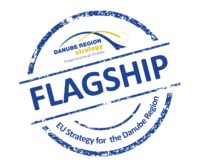Process; 2019-2028
Submitted by / EUSDR Priority Area(s): PA 4 Water Quality
EUSDR PA 4 has been very active in the field of emerging substances as they represent a significant risk to the water environment. Although in accordance with Watch List of Directive 2000/60/EC (Water Framework Directive – WFD; Annex X – the substances are specified in detail in Directive 2013/39/EU), there is an obligation to monitor hazardous and emerging substances in surface water, and for groundwater it is not compulsory. Since this list is continually enlarging, currently there is not enough relevant data available on their occurrence as well as on their impacts on ecosystems and humans.
PA 4 organised data collection on microplastic and is supporting international projects and project proposals on plastic and microplastic like Tid(y)Up, PlasticFreeDanube and MapRiverPlastic. PA 4 also helps awareness raising on the plastic pollution of waters by cooperating with the CleanDanube project and by its own brochure on best practices towards reduction of plastic pollution. Furthermore, pilot research was made on micropollutants in the Danube at five wastewater treatment plants in 2021 in Hungary.
Moreover, PA 4 in 2019 prepared a study on the pharmaceutics occurrence in surface water and groundwater, which had positive impact on policymaking and development. As continuation to this topic, PA 4 plans to organise a conference on pharmaceutics occurrence in water, when the respected legislation will be valid. Moreover, PA 4 also contributed to supporting the bo-DEREC-CE international project. The established cooperation with the EU Baltic Strategy in hazardous substance issues is promising to solve the challenges jointly. Future activities are also planned in this flagship process like the upcoming conference on pharmaceuticals or a follow-up of the Tid(y)Up project (Aquaplastic submitted to the DRP call), (micro)plastics’ impacts on ecosystems should also be studied further.
Objectives
As defined in the EUSDR Action Plan, PA 4 Action 1 objectives:
- Close knowledge gaps on monitoring of hazardous and emerging substances in surface waters, biota and sediment
- Determine sources and pathways of hazardous and emerging substances emissions
- Quantify water emissions and loads
- Implement prevention and mitigation measures including a more comprehensively evaluation of measures efficiency
- Contribute to capacity building in monitoring, modelling and management of hazardous substances pollution
- Contribute to improved quality of sediments
The flagship process will contribute to achieving the foreseen targets of PA 4 in the upcoming six years.
Need and (expected) impact
The flagship process will contribute to close the knowledge gap on monitoring of hazardous and emerging substances in surface waters, biota and sediment, and will provide updated information on the situation related to hazardous and emerging substances, such as pharmaceuticals, and microplastics in the Danube Region.
The future challenge is not only to monitor the occurrence of hazardous substances in the waters and sediments, but also to investigate their impacts and impacts of their metabolites to humans and biota.
Macro-regional dimension
PA 4 prolongs already established cooperation with the EU Strategy for the Baltic Sea Region in the field of pharmaceuticals and their removal from waters. Based on the study completed in 2019 PA 4 is planning to organise the international pharmaceutical conference in the future when respected legislation will be valid.
In the past PA 4 organised two macro-regional meetings focusing on water issues and there was one study elaborated about macro-regional strategies by our HU partner (TRENECON company). The first meeting was attended by representatives by all four macro-regional strategies (Baltic, Danube, Adriatic-Ionian and Alpine) and there was an excellent exchange of knowledge and experience, especially in hazardous substances in the water.
Stakeholders involved
PA 4 SG members; Baltic Strategy experts; DG ENVIRONMENT experts; International Commission for Protection of the Danube River (ICPDR); International Sava River Basin Commission (ISRBC); Global Water Partnership Central and Eastern Europe (GWP CEE); NGOs active in plastic pollution; Water companies; laboratories, etc.
Regular cooperation with the mentioned organisations, ensured by trilateral and SG meetings, joint events.
Budget and Funding
The PA 4 project contains a budget for implementing PA 4 actions, including topics listed in this flagship process. The process has already been partly financed by implementation of the PA 4 relevant projects related to hazardous substances, e.g. projects implemented: DanubeHazard M3C, PlasticFreeDanube; TIDY – UP; CleanDanube; bo-DEREC-CE; project proposal MapRiverPlastic). They were financed by Interreg V-A Slovakia-Austria, Interreg Danube Transnational Programme, Interreg Central Europe Programme, and other sources.
The new financing should be allocated for monitoring of hazardous and emerging substances occurrence and for investigation of their impacts on humans and ecosystems. The process will be supported by the organisation of events and public awareness raising campaigns, e.g. meetings, conferences, workshops.
Further information
https://waterquality.danube-region.eu/
The process includes also:
- DanubeHazard M3C project (https://www.interreg-danube.eu/approved-projects/danube-hazard-m3c)
- Tid(y)Up project and its potential continuation (https://www.interreg-danube.eu/approved-projects/tid-y-up)
- PlasticFreeDanube project (https://plasticfreeconnected.com/)
- CleanDanube project (https://www.cleandanube.org/?lang=en)
- MapRiverPlastic project proposal
- Plastic brochure
- Small project on microplastic at WWTPs
- bo-DEREC-CE project (https://www.interreg-central.eu/Content.Node/boDEREC-CE.html)
- Study on occurrence of pharmaceuticals in the waters of the Danube region Pharmaceuticals cooperation with the Baltic Strategy
- Planned pharmaceuticals conference
Contact:
PAC PA 4: Márton Pesel (pesel.marton@ovf.hu)

>> Download Certificate 2022 <<
>> Download Certificate 2023 <<

